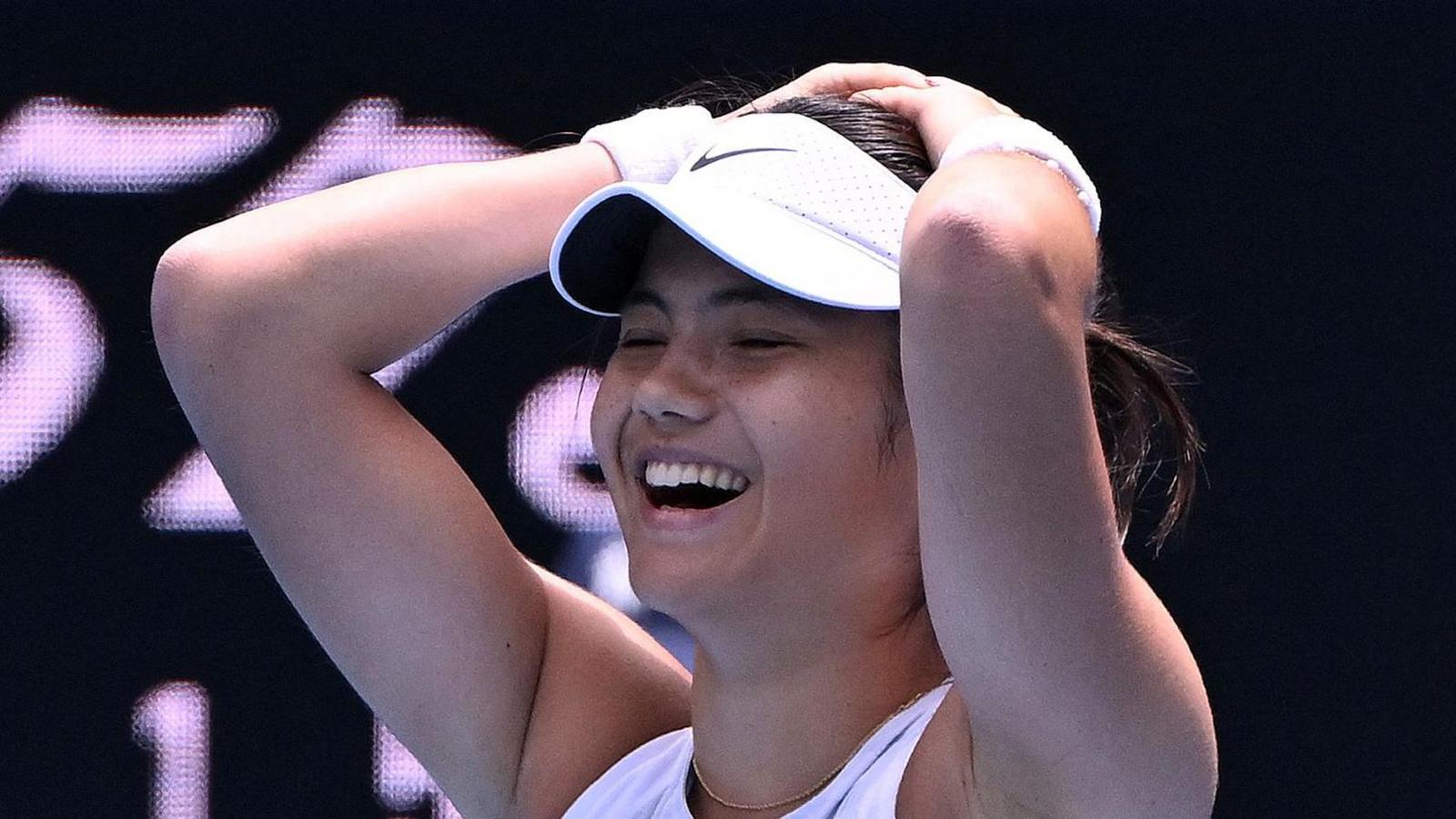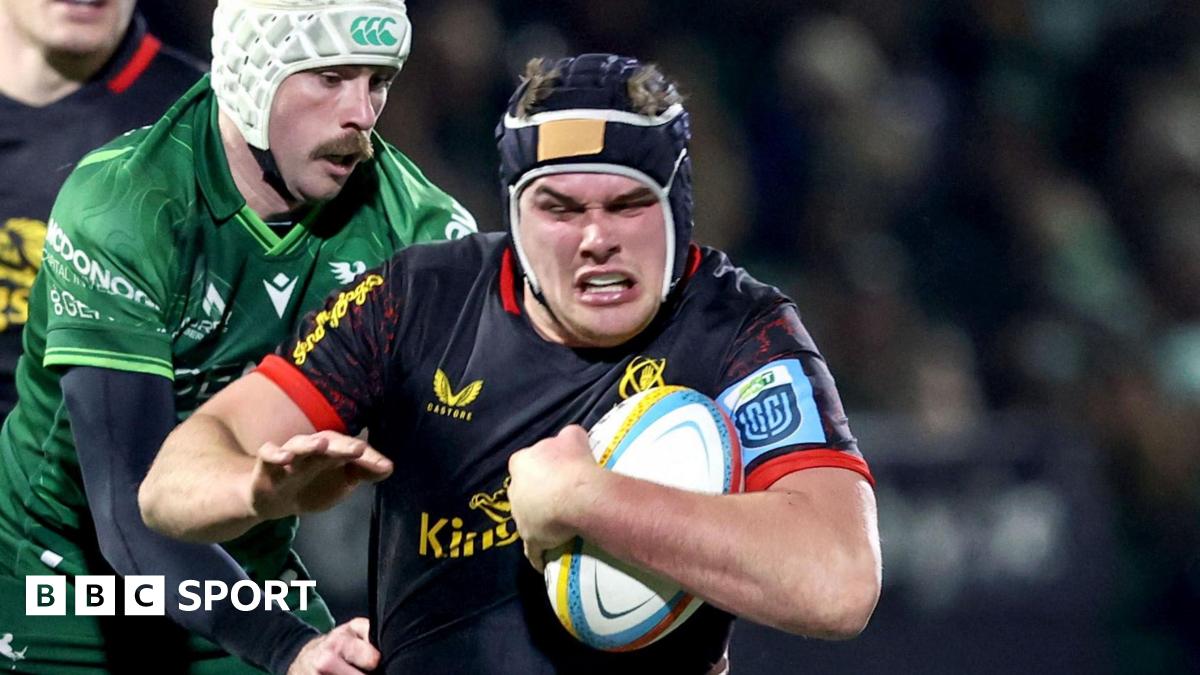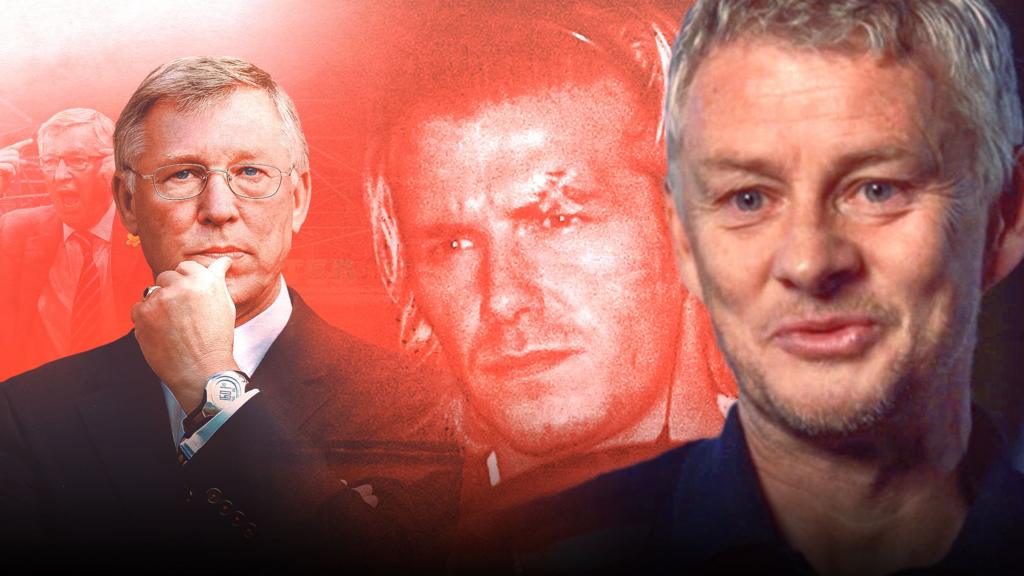 Image source, Getty Images
Image source, Getty Images
Jonathan Jurejko
BBC Sport tennis news reporter in Melbourne
Emma Raducanu reached the Australian Open third round for the first time in her career with a dogged victory over American opponent Amanda Anisimova.
The 22-year-old Briton won 6-3 7-5 to set up a meeting with Polish second seed Iga Swiatek next.
Raducanu's preparations for the opening Grand Slam of the season were hampered by a back injury and she needed treatment twice during the second-round match.
But the world number 61 managed to find a way to beat Anisimova - a friend who is ranked 35th - in a tussle where there were 13 breaks of serve.
"To make it past the second round means a lot to me," said Raducanu.
"It's incredibly difficult whenever you play a friend and adds another dimension to the match - and not necessarily a pleasant one."
Raducanu will play five-time Grand Slam champion Swiatek in the last 32 on Saturday.
Second seed Swiatek, who has never gone past the Melbourne semi-finals, thrashed Slovakia's Rebecca Sramkova 6-0 6-1 in an hour earlier on Thursday.
How Raducanu battled through injury to beat Anisimova
Having pulled out of her season-opening event in Auckland after suffering a back spasm, Raducanu had not played since mid-November before her first-round win over Ekaterina Alexandrova.
Raducanu struggled with her second serve against the Russian 26nd seed, hitting 15 double faults which she put down to a remodelled serve and early tournament nerves.
Another on her first service point against Anisimova was not an encouraging start.
Although she quickly stemmed the flow, Raducanu's serve was regularly punished by the American's explosive hitting.
But Anisimova - who reached the French Open semi-finals as a 17-year-old in 2019 and is re-establishing herself after taking a mental health break from the sport in 2023 - also had issues with her serve and handed over the opening set with a double fault.
At the start of the second set, there were further signs of Raducanu's back issue having an effect.
After stretching out the area between points, three double faults handed over another break and Raducanu called the trainer when she lost serve again for 3-0.
The physiological, and perhaps psychological, boost helped her immediately.
Image source, Getty Images
Image caption,Raducanu and Anisimova, who are a similar age and share a love of art, have become friends in recent years
Raducanu clawed both breaks back for 3-3 when she returned, before more treatment between the exchange of another two breaks for 4-4.
Anisimova is a crisp ball-striker but can be erratic, and Raducanu's resistance from the baseline swung a delicately-balanced ninth game her way from 30-30.
Raducanu saved a break point in the 11th game, set up match point in the next with a wonderful crosscourt forehand winner and clinched victory when Anisimova sliced a backhand wide.
"I had to fight hard and not go away even when the chips were down," said Raducanu.
"It's difficult because I haven't played a lot. The way I play is pretty athletic so I use my body a lot.
"I'm glad I have some time to recover before my next round."

 By BBC (Sports) | Created at 2025-01-16 04:29:48 | Updated at 2025-01-16 07:08:09
2 hours ago
By BBC (Sports) | Created at 2025-01-16 04:29:48 | Updated at 2025-01-16 07:08:09
2 hours ago








